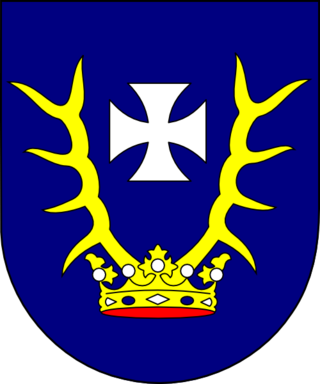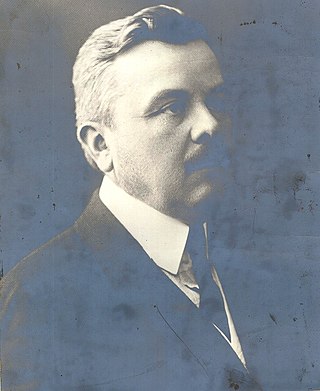Political party in Hungary
 |
|---|
Executive |
Parliament |
The Christian National Economic Party was a political party in Hungary during the 1920s.
 |
|---|
The Christian National Economic Party was a political party in Hungary during the 1920s.
The party was established in 1925 as the Christian Economic Party by János Zichy, with most members being former civil servants. [1] It was later renamed as the Christian National Economic Party, but was widely known as the Zichy Party. [1] The party won 35 seats in the 1926 elections, becoming the second largest party behind the ruling Unity Party.
Around 1930 it merged with the Christian National Union Party and the minor Christian Social Party to form the Christian Economic and Social Party. [1]
The party supported a return to Habsburg rule. [1]
Conservatism is a cultural, social, and political philosophy and ideology that seeks to promote and preserve traditional institutions, customs, and values. The central tenets of conservatism may vary in relation to the culture and civilization in which it appears. In Western culture, depending on the particular nation, conservatives seek to promote and preserve a range of institutions, such as the nuclear family, organized religion, the military, the nation-state, property rights, rule of law, aristocracy, and monarchy. Conservatives tend to favor institutions and practices that enhance social order and historical continuity.
Distributism is an economic theory asserting that the world's productive assets should be widely owned rather than concentrated. Developed in the late 19th and early 20th centuries, distributism was based upon Catholic social teaching principles, especially those of Pope Leo XIII in his encyclical Rerum novarum (1891) and Pope Pius XI in Quadragesimo anno (1931). It has influenced Anglo Christian Democratic movements, and has been recognized as one of many influences on the social market economy.

The Free Democratic Party is a liberal political party in Germany.

The Netherlands is a parliamentary representative democracy. A constitutional monarchy, the country is organised as a decentralised unitary state. The Netherlands can be described as a consociational state. Dutch politics and governance are characterised by a common striving for broad consensus on important issues, within both of the political community and society as a whole.
Social conservatism is a political philosophy and a variety of conservatism which places emphasis on traditional social structures over social pluralism. Social conservatives organize in favor of duty, traditional values and social institutions, such as traditional family structures, gender roles, sexual relations, national patriotism, and religious traditions. Social conservatism is usually skeptical of social change, instead tending to support the status quo concerning social issues.

Christian democracy is an ideology inspired by Christian social teaching to respond to the challenges of contemporary society and politics.

The Christian Democratic Party is a Christian democratic political party in Chile. There have been three Christian Democrat presidents in the past, Eduardo Frei Ruiz-Tagle, Patricio Aylwin, and Eduardo Frei Montalva.
Liberal conservatism is a political ideology combining conservative policies with liberal stances, especially on economic issues but also on social and ethical matters, representing a brand of political conservatism strongly influenced by liberalism.
Centre-right politics is the set of right-wing political ideologies that lean closer to the political centre. It is commonly associated with conservatism, Christian democracy, liberal conservatism, and conservative liberalism. Conservative and liberal centre-right political parties have historically performed better in elections in the Anglosphere than other centre-right parties, while Christian democracy has been the primary centre-right ideology in Europe.
Conservative liberalism, also referred to as right-liberalism, is a variant of liberalism combining liberal values and policies with conservative stances, or simply representing the right wing of the liberal movement. In the case of modern conservative liberalism, scholars sometimes see it as a more positive and less radical variant of classical liberalism; it is also referred to as an individual tradition that distinguishes it from classical liberalism and social liberalism. Conservative liberal parties tend to combine economically liberal policies with more traditional stances and personal beliefs on social and ethical issues. Ordoliberalism is an influential component of conservative-liberal thought, particularly in its German, British, French, Italian, and American manifestations.

The House of Zichy is the name of an ancient Magyar family of the Hungarian nobility, conspicuous in Hungarian history from the latter part of the 13th century onwards.

Zichyújfalu is a village in Fejér county, Hungary, about 10 km from Lake Velencei, which is more or less easy to reach on road and on railway. The settlement used to be a part of Gárdony but declared its independence in December 1997.

Count János Zichy de Zich et Vásonkeő was a Hungarian politician, who served as Minister of Religion and Education between 1910–1913 and in 1918. He was a member of the House of Magnates from 1894. He was the chairman of the Catholic People's Party for many years, but he resigned in 1903. He joined the Constitution Party in 1906. When the party collapsed, he became a member of the Party of National Work.

Princess Melanie Marie Pauline Alexandrine von Metternich-Zichy was an Austrian aristocrat.
Centre-left politics is the range of left-wing political ideologies that lean closer to the political centre and broadly conform with progressivism. Ideologies of the centre-left include social democracy, social liberalism, and green politics. Ideas commonly supported by the centre-left include welfare capitalism, social justice, liberal internationalism, and multiculturalism. Economically, the centre-left supports a mixed economy in a democratic capitalist system, often including economic interventionism, progressive taxation, and the right to unionize. Centre-left politics are contrasted with far-left politics that reject capitalism or advocate revolution.
The Christian Economic and Social Party was a political party in Hungary in the inter-war period.
The Catholic People's Party was the name of two conservative parties active concurrently in the two components of the Austria-Hungary dual monarchy.